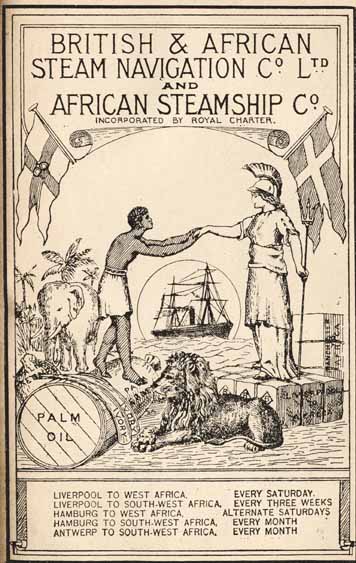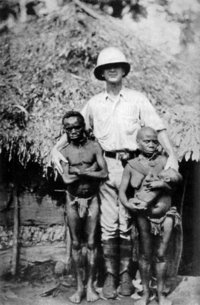
During the 16th Pan African Film & Arts Festival (PAFF) in Los Angeles held February 7-18, one can immerse themselves in African culture and politics through films rarely seen here made by many talented African filmmakers. African issues such as Darfur, AIDS, poverty, etc, are well known to most Americans essentially through the help of Hollywood celebrities using the media to draw attention to their cause. But many of the films shown at PAFF, directed by Africans from all over the continent, give the viewer a unique opportunity to glimpse inside these cultures and experience how the different African nations are both unique and similar to each other, and, in some ways perhaps, to our own nation.
The fact that the name of Burkina Faso’s past president, Thomas Sankara, is essentially unknown to most Americans is not surprising. In fact, if we were offered one million dollars to point to the African nation of Burkina Faso on a map, most of us would lose. Director Robin Shuffield’s Thomas Sankara: The Upright Man is a documentary of Sankara who, between 1983 and 1987 at age 33, became leader of Burkina Fasso, a small landlocked nation located north of the smaller nations of the Ivory Coast, Ghana, Togo, Benin, south of Mali, and west of Niger. This small nation of Africa has been colonized by the French since 1896, and was once called Upper Volta. Sankara was eventually assassinated in a coupe led by his right hand man, “friend” and confidant, Blaise Compaoré, and discretely buried in an unmarked grave.
Many, to this day, consider the short-lived, revolutionary ideas that Sankara implemented in his brief term a tragic waste and missed opportunity for his country. Armed with a Marxist vision that might have made his nation a triumphant example of this ideology, Sankara began his presidency redirecting the political power base to create a fair, independent state through such successful programs that he was seen as a threat by many neighboring African nations sympathetic to colonial ideas and to others including Francois Mitterand, prime minister of France at that time. In the first year of his presidency, Sankara replaced all Mercedes owned by government officials with cheaper cars. He then began health reforms vaccinating over a million people in one week, a record recognized by the World Health Organization; instituted unprecedented women’s equality in all forms of society, banned female circumcision, polygamy and promoted contraception; began railroads and environmental protection programs; and attempted to use all the resources of his nation for production of food and clothing to prevent exploitation of outside imperialist forces. Changing the name of his small nation to Burkina Faso in his first year of leadership, meaning “The Land of the Upright Man,” is indicative of the vision that he had for his people.
Subtitled from French, director Shuffield allows Sankara’s charisma and dedication to Marxist ideals come through in many original filmed speeches to his people. Multiple close-ups of Sankara’s smiling face often reveal an intense yet approachable character. When he tells his people that: “The one who feeds you induces his will upon you” one can sense that this was a leader of the people who whole-heartedly believed in a vision of self-sufficiency and a refusal to “afro-pessimism.”
Shuffield has picked compelling footage that portrays Sankara’s earnestness, integrity, morals, and humor. An unwavering commitment to his leftist ideals, his people and his country are made indelible through a linear montage of interviews, news clips, and videos both old and new during Sankara’s time as leader and after. As a result, we see those who worked with him, those who benefited from his policies, and those who opposed him both in his own country and world leaders abroad. In an interview with a member of his party reflecting on Sankara’s regime, he lends insight into the reason that Sankara had the ability to say things many other leaders would not; because he never saw himself as a god, and he never saw any leaders of any other country as one either. He was a true Marxist in the egalitarian sense.
Shuffield, however, does not paint Sankara’s revolution as ideal and all good. We see clips of newscasts exposing problems of Sankara’s impatience to incorporate his social ideas into the culture. In a teacher’s strike, Sankara makes the mistake of not recognizing their grievances and fires them all, hiring under-trained and incompetent teachers to replace them, damaging the educational system. Sankara’s ideals and impatience were perhaps what many say had ultimately led to creating unrest in the country by some who did not like where his philosophy was taking them.
Although, the back story of Sankara’s early life before his rise to leader is disappointingly absent, and much of the borrowed film footage is slightly blurred, the story is elucidating. Even though we see Sankara’s ideas fail in the end, at the very least the film is an interesting look at an independent government accomplishing positive results in record time when left to its own resources. And if that’s not enough, it’s worth the price of the film for no other reason than to broaden your knowledge of Africa.





3 comments:
Very interesting what you say about the TRC being impotent at restoring a victim’s psychological health from the army’s brainwashing and the affects of war. That was one of the most frightening and profound aspects of the film for me, watching this poor child, who is only 16, fight against such profound psychological traumas. He cannot sleep. He wets his bed. He needs marijuana to calm himself, and in the courtroom, he cannot access the traumatic memories that will set him free. In fact, in the end, the effort and exertion required to even try and access these memories is more than his body can take, and so it shuts down completely, collapsing on the floor.
It also makes me wonder about the future of these child soldiers who at age 16 are hardly able to function in society. Will they go back to being rebel soldiers because they know nothing else? If they do not, what kind of lives can they lead if their country is still a war zone? Can they work, get married and lead a “normal” life? If they do find some semblance of normalcy, can they ever recover from the traumas? How will the psychological damage affect their parenting and attitudes toward their own kids? Even more frightening is the question of how they will feel if their own children are kidnapped and forced into the life they themselves had to endure. The cycle seems like a downward one and I wonder how they will reverse it. As more and more children are subjected to kidnapping and forced into lives of war, what will the country look like in 10 or 20 years?
A very interesting movie indeed. It is sad that we are not exposed more to the "good" leaders as we are to the bad ones. What is so frightful is how when a man or woman chooses to change their country to the better they instantly become a threat and need to be "taken out". Yet as Sankara was a great leader there are mistakes to be made such as the one he did when firing all the teachers, but then again he was nothing but human and humans are well known to make grave mistakes. It brings joy to know that there are people that want what is best for their country and people and does not care about who has the power. When you wrote that Sankara changed the government owned cars from Mercedes to cheaper cars it brought a smile to my lips, it is not common for someone that has reached the power he did to actually make things a little worse for himself and the other leaders so that his people can live little better life. Sankara’s leadership should be taught in schools because it will change the minds of the people that think of Africa in stereotypical ways. When western people think of African leaders they think of leaders that do not know how to run a country and instantaneously they want to "help" to show how it is really done. I have one thing to say to those people GEORGE W. BUSH. The fact that Sankara initiated health reforms that gave vaccinations to over a million people in one week is more than many leaders in the western world have done, needless to point fingers. About this feature, or documentary, I must say that it should be more exposed to more people so that we can learn of other leadership than the ones we are living in. We can learn from other countries as they can learn from us. Experience is nothing but educational.
I enjoyed how you began your review on a broader scale and then focused it on the film. This allowed me to prepare myself as to what kind of film I would soon be exploring through your review. I was not able to see this film, but from your review, I can compare it to the themes and focuses of the films I saw: Drum and Ezra. I liked how the films in the festival explored facets of political, philosophical, and social issues from different African countries. Your review is correct in that at this time, I could not point out Burkina Faso on a map. Your review provided thorough information on the film and connections to our own world. As this country embarks on its own struggle for political change, it is interesting to note a film on the struggles of a Marxist leader of a small African country who fought for his own change. You also pointed out that Sankara had weaknesses which lead to his demise. Again, I think this is important to explain in a review as it gave me the proper information for whether or not I want to see a film about this man.
Post a Comment